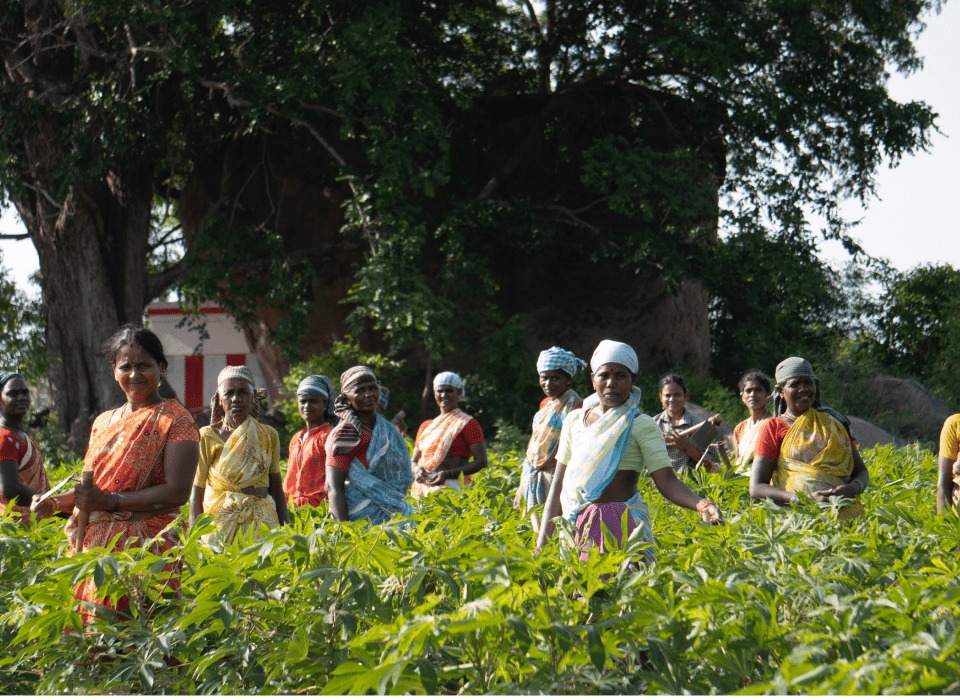Nature Bio Foods BV is a company that specializes in the production and distribution of organic food products, including grains, pulses, spices, and more. Our farmers are making an impact by practicing organic farming methods in different ways.
IMPACT BY OUR FARMERS
Impact


Healthier Soil
Sustainable practices such as crop rotation, cover cropping, and composting, the farmers associated with Nature Bio Foods can help to maintain soil health and reduce the need for synthetic fertilizers and pesticides.
By rotating crops, organic farmers ensure that different plants are grown in the same field in different years, which helps to prevent soil-borne pests and diseases from building up. This also helps to maintain soil fertility, as different plants have different nutrient requirements. Our farmers use cover crops, such as clover or rye, to provide cover for the soil and add organic matter to the soil. These crops can also fix nitrogen in the soil, making it available for future crops.
Composting is another method used by our farmers in which compost is made from plant material and other organic waste, to add organic matter to the soil. It improves soil structure, water-holding capacity, and fertility.
By reducing tillage, our farmers help to maintain soil structure, reduce erosion, and promote soil microorganisms that help to break down organic matter and provide nutrients to crops.
Better Water Management
Sustainable management and the use of water resources to meet current and future needs are a must. It is an important issue as water is a finite resource, and many regions around the world are facing water scarcity due to increasing demand and limited supply.
Our farmer’s practices help to conserve water and reduce water pollution, as synthetic fertilizers and pesticides can leach into groundwater and surface waters They also use water conservation practices, such as drip irrigation or rainwater harvesting, to reduce water waste and improve water use efficiency.
The incorporation of water-saving landscaping practices by our farmers, such as xeriscaping and rain gardens, helps to reduce water use and conserve water in outdoor spaces.
Environmental Protection
Our farmer’s sustainable agricultural practices help to protect the environment in several ways. By avoiding the use of synthetic fertilizers and pesticides, and reducing pollution, they reduce the risk of contamination of soil and water resources.
Our farming methods also promote biodiversity by supporting the growth of a diverse range of crops and plants, which can help to protect wildlife and improve the overall health of ecosystems. Additionally, our farmers often use practices such as cover cropping, composting, and reduced tillage to improve soil health, which can help to conserve soil and reduce soil erosion.
By using sustainable practices and avoiding harmful chemicals, we contribute our bit to environmental protection and the long-term health of our planet.
Rural Economic Development
Agriculture is a major contributor to many countries’ economies, and our farmers are the backbone of local rural communities.
Our farmers have a significant impact on local communities. By providing livelihoods and employment opportunities, they help to stimulate economic growth and create a more resilient and self-sufficient rural economy. Additionally, by producing high-quality, locally-grown food, they also help contribute to the development of strong local food systems, which helps to create new markets and increase demand for the products.
Furthermore, the use of sustainable agricultural practices, help to conserve natural resources, such as soil and water, which are critical to the long-term viability of rural communities. Through all this our farmers make communities reap the benefits of a more prosperous and sustainable local economy.


